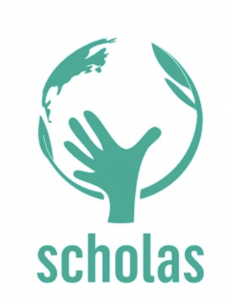Inclusive and global
research on Cyberbullying
Our work on cyberbullying
The widespread use of social media and toxic use of the internet has given schoolyard bullies a new approach to hurt their victims. The spread of cyberbullying has been increasing drastically over the years. As a result of this, more and more young people are victims of anxiety, fear, depression, low self-esteem, mental health issues and, some of them, are even left with the intentions to commit suicide.
Cyberbullying is a relatively recent issue that grows faster than the development of measures to prevent, canalise or tackle it. One of the main issues related to cyberbullying is that people who are shaping policies and research on this topic still struggle to understand what it is, how it takes form and how to protect potential victims.

Based on the idea of local leadership and on the inclusion of diverse voices to shape inclusive solutions to social issues, we have developed two initiatives to contribute to preventing and tackling cyberbullying. Both initiatives are developed in partnership with Scholas, the Pope’s imitative on education and Instituto Crescer, an international institute aiming at creating inclusive online education.


THE LEARNING NETWORK PROGRAMME
This programme was organised for the first time in 2018 on the topic of cyberbullying with 12 universities, in Brazil, Senegal, Italy, Spain, Mexico, Israel, among other countries. Instituto Crescer has been implementing this programme since 2005. The results were presented at the annual congress of Scholas at the residence of the Pope in Rome.
This programme consists of a 12 weeks programme where groups of students reflect on cyberbullying and elaborate on implementable and realistic solutions that could contribute to preventing it and tackling cyberbullying in their local environment. The programme relies on a methodology co-designed with Instituto Creser where each group shares their reflections and learnings with an online community created for this programme. The programme starts by inviting participants to do research on cyberbullying and is followed by guiding them to create surveys to understand its forms and spread in their local communities. The groups have also to talk to experts, organise brainstorming, pilot studies and evaluate potential solutions, among other activities. At the end of the programme each group presents an initiative that could be used to tackle cyberbullying in their local environment.
GLOBAL STUDY ON PERCEPTION OF CYBERBULLYING
This is the biggest and first international study developed on cyberbullying with young people. As cyberbullying is a relatively new problem, understanding what it is, how it spreads and who are the victims is still, so far, not well understood. With this study we are collecting perceptions on cyberbullying from the perspectives of young people. Young people are the most affected by cyberbullying, listening to their voices and including them to understand this problem is, as a result, crucial. Hundreds of schools and informal entities in Colombia, Brazil, Pakistan, Egypt, Japan, China, Australia, India, Canada, Spain among other have confirmed to participate to this study.
In concrete terms, group of young people will participate and follow a methodology based on storytelling that was developed for this study where each one of them will draw and describe a story that best describes cyberbullying to them. The data of this study will be analysed using artificial intelligence and will contribute to a better understanding of different forms of cyberbullying, their victims and potential solutions to tackle it.
For more information on any of these studies please contact Christina Myers

